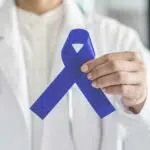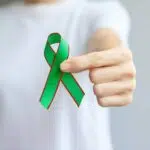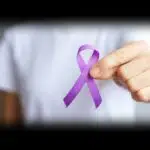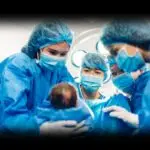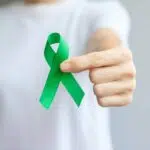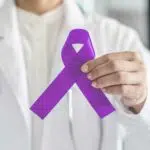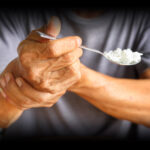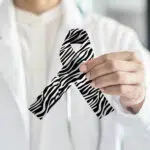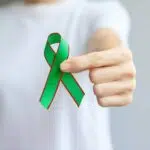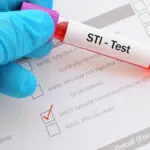Primary Immunodeficiency Month is observed in April. This holiday is intended to raise awareness of primary immunodeficiency disorders (PIDDs). PIDDs affect thousands of people, however, the general public does not have in-depth knowledge of this disorder. The study of PIDDs helps doctors in developing treatments for these rare genetic diseases, which are often chronic, costly, and debilitating. However, without public support and awareness, these efforts will be limited — as research requires funding and a level of interest from the public. When it comes to health issues, community-driven initiatives can make a difference. This is why we observe Primary Immunodeficiency Awareness Month.
History of Primary Immunodeficiency Month
Organizations such as the National Institute of Allergy and Infectious Diseases (NIAID) have been studying PIDDs since the 1970s. Researchers have spent decades investigating the causes of these disorders as well as the health complications they cause for patients and their families. The goal has always been to prevent PIDDs, improve diagnosis, and develop new treatment methods. Recent research has focused on the role of genetic counseling in the treatment of these disorders.
The earliest-known examples of PIDDs date back to the 1920s and 1930s, but it wasn’t until the 1950s that our understanding of this disease began to expand. In 1970, the World Health Organization (WHO) identified 16 different types of PIDDs. This figure had risen to 50 by the late 1990s. Throughout the 2010s, advances in D.N.A. sequencing technology resulted in the rapid discovery of novel genetic causes of PIDDs. Doctors also started experimenting with the clinical application of gene addition strategies, to help treat PIDDs.
The spectrum of PIDDs continues to expand as the scientific community learns more about them, increasing the demand for doctors from all disciplines to become acquainted with these disorders. A patient presenting symptoms of a disease or allergy may be suffering from an immunodeficiency disorder. Primary Immunodeficiency Awareness Month is important not only for the general public but also for the medical fraternity. The more medical professionals who are aware of PIDDs, the more patients will benefit from their knowledge and understanding of these rare genetic conditions.
Primary Immunodeficiency Month timeline
Colonel Ogden Bruton notes the absence of immunoglobulins in a child with a history of susceptibility to infections, terming this condition ‘agammaglobulinemia.’
Swiss doctors discover similar patients and recognize their condition is immunodeficiency, coining the term ‘Swiss-type agammaglobulinemia.’
The International Union of Immunological Societies (I.U.I.S.) is founded, acting as a governing body for several immunological societies worldwide.
The I.U.I.S. splits immunodeficiency disorders into nine categories, with a system defined on the type of immune defect.
Primary Immunodeficiency Month FAQs
How long can you live with immunodeficiency?
With proper management and care, life expectancy for persons with immunodeficiency can exceed 50 years.
What is the difference between autoimmune and immunodeficiency?
An autoimmune disease is when the immune system attacks healthy cells, organs, and tissues in the body, while an immunodeficiency is an impairment of the immune system.
Is immunodeficiency the same as immunocompromised?
If your immune system is unable to fight off an infection, you may be immunocompromised.
How to Observe Primary Immunodeficiency Month
Become a volunteer
Volunteering is an excellent way to make a difference in the primary immunodeficiency community. You can help a fundraising project by becoming a volunteer and using your networks and social media. Peer support programs are also available to assist people who are personally affected by immunodeficiency disorders.
Donate your plasma
Plasma donations are used in the treatment of immunodeficiency disorders. To treat one patient for a year, approximately 130 plasma donations are required. Learn more about the requirements so you can help people affected by this disorder during Primary Immunodeficiency Awareness Month.
Spread the word
This month presents an opportunity to educate others on primary immunodeficiency. You can do this by distributing materials to schools, clinics, and other locations. This way you create an understanding of immunodeficiency disorders. It never hurts for people to be more informed about the issue.
5 Crucial Facts About Primary Immunodeficiency
An increased likelihood of autoimmune disorders
Since your immune system also protects your body from cancer, people with primary immunodeficiency are more likely to develop autoimmune disorders.
Men are the most affected
Approximately 60% of people with primary immunodeficiency disorders are men.
Cancer can cause immunodeficiency disorders
When cancer affects the bone marrow, it can impair the production of healthy white blood cells, resulting in a weakened immune system.
There are hundreds of immunodeficiency disorders
There are over 400 different types of immunodeficiency disorders that affect different parts of the immune system as of 2019.
Primary immunodeficiency affects thousands of Americans
Around 500,000 people in the U.S. have a primary immunodeficiency disease.
Why Primary Immunodeficiency Month is Important
It raises awareness
Primary immunodeficiency is a relatively unknown condition that affects a large number of people. During this month, people will learn more about it. The more information that is available about it, the better it is for people who suffer from it.
It creates a positive environment
People with immunodeficiency disorders are recognized during this holiday. Knowing you're not alone in your struggle can provide you with the motivation you need to keep going. The attention and support provided during this holiday season contribute to the creation of a positive environment for people suffering from this disorder.
It helps with fundraising and donations
Primary Immunodeficiency Awareness Month contributes to the cause by raising funds. Many organizations hold raffles, tournaments, and even carnivals to raise funds for immune deficiency research and treatment.
Primary Immunodeficiency Month dates
| Year | Date | Day |
|---|---|---|
| 2026 | April 1 | Wednesday |
| 2027 | April 1 | Thursday |
| 2028 | April 1 | Saturday |
| 2029 | April 1 | Sunday |
| 2030 | April 1 | Monday |




















